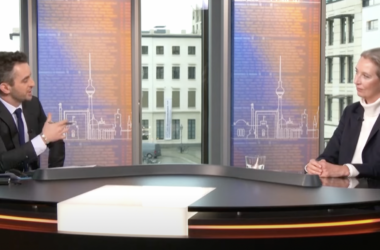Following a fatal stabbing on a Berlin subway train over the weekend, city officials have floated the idea of expanding knife ban zones across public transit. The suggestion, made by Interior Senator Iris Spranger, has drawn swift criticism for being, in the eyes of many, a symbolic fix to a deadly problem.
The tragedy unfolded on Saturday aboard the U12 line when a confrontation between two passengers escalated. A 43-year-old Syrian man fatally stabbed a 29-year-old rider with a kitchen knife. Police intervened quickly, shooting the suspect, who later died from his injuries in the hospital on Sunday.
In response, Spranger announced the government is mulling over the idea of introducing more knife-free areas—this time targeting Berlin’s buses, trains, and stations. “Regardless of this weekend’s event, we’re evaluating the need for additional weapon ban zones,” she told Tagesspiegel, portraying the move as a preventative step.
Berlin already has three designated knife ban zones—Leopoldplatz, Görlitzer Park, and Kottbusser Tor—where officers are allowed to conduct random ID checks and weapon searches. Since mid-February, police have confiscated 95 weapons in those areas. Spranger argues such zones are both a deterrent and a statement that violence won’t be tolerated in Berlin’s public spaces.
But not everyone’s buying it.
Critics, including the Berlin Police Union, say the proposal misses the mark. Union spokesman Benjamin Jendro didn’t mince words, calling the idea “too short-sighted” and likening it to a placebo solution. “Saturday’s attack proves that anyone intent on violence won’t be stopped by a sign banning knives,” he said, adding that the city’s transit authority already prohibits weapons on trains—a rule the suspect ignored.
Enforcing a citywide knife ban across a sprawling transport network, Jendro warned, would be a logistical nightmare. “Police simply can’t keep tabs on every station and carriage at all times,” he pointed out.
The debate has even spilled beyond Germany’s borders. In Austria, where similar no-knife zones are in place, a separate incident over the weekend reignited criticism. A 42-year-old Turkish man attacked two police officers in Vienna’s Favoriten district, underscoring what critics claim is a fundamental flaw in the policy.
Austria’s right-wing Freedom Party wasted no time slamming the ban zones. Gernot Darmann, the party’s security spokesperson, dismissed them as “absurd,” arguing they offer little real protection and amount to little more than political theater.
For Berlin, the question remains: can a rule stop a crime if those willing to break it don’t fear the consequences? As the city grapples with a rise in knife violence, that answer has never been more urgent—or more contested.




